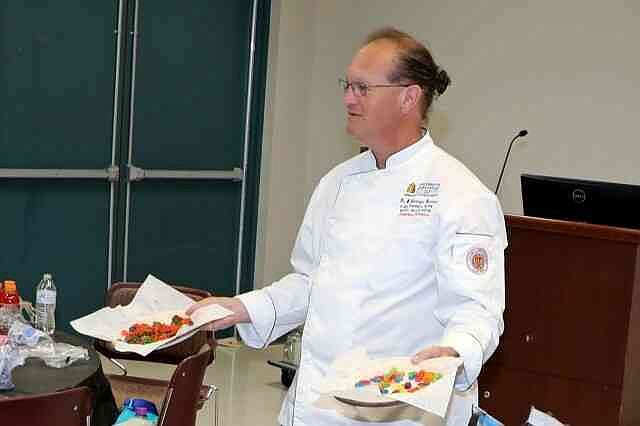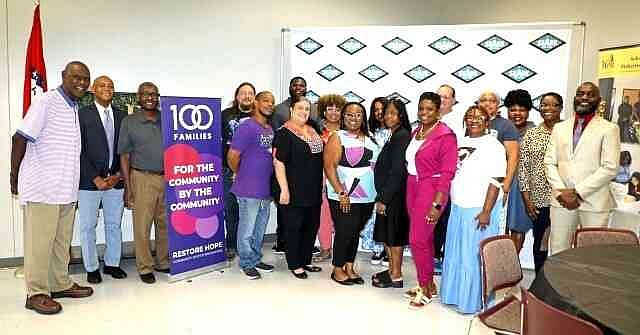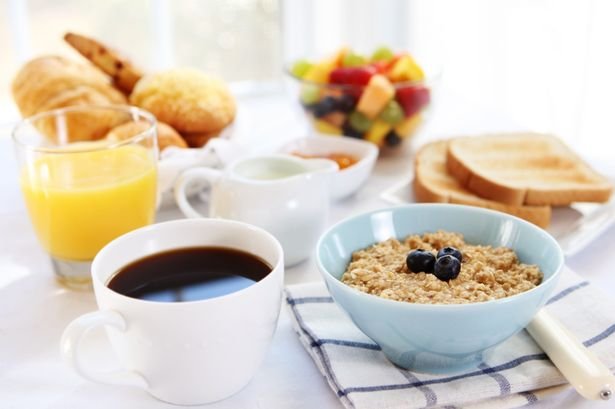More than 30 community members recently gathered at Southeast Arkansas College to explore solutions for promoting healthy eating in local youth programs.
The meeting marked the third of a series of Feeding Brighter Futures workshops, created by the University of Arkansas at Pine Bluff Department of Human Sciences to inspire future leaders in nutrition, food science and wellness.
Funded by a grant from the 1890 Center of Excellence for Nutrition, Health, Wellness and Quality of Life, the workshop engaged participants in activities and facilitated conversations surrounding community health, nutrition, and food security, according to Kimberly Haynie, associate professor of nutrition and food science at UAPB and the grant’s principal investigator.
“Our community health and wellness initiative continues to grow in its second year,” Haynie said.
“We were pleased to host UAPB and SEARK students who discussed why they feel that nutrition is important for athletic performance and positive youth development. Attendees said they enjoyed the interactive activities and asked that we continue this type of programming.”
During the workshop, Marilyn Bailey, interim chairman for UAPB’s Department of Human Sciences, presented welcome remarks.
Teki Hunt, director of UAPB’s 4-H Youth Development Program, conducted an activity from the 4-H Sports Nutrition Curriculum called “Finding Hidden Water for Hydration.” Volunteers prepared their own sports drink according to the lesson’s recipe using concentrated orange juice, lemon and lime juice and salt.
“Thanks to this activity, participants learned that over 60% of their body weight is water,” Hunt said.
“They were also taught the importance of hydrating with fruits and vegetables rather than just drinking water, since water does not replace electrolytes lost when sweating. Staying hydrated helps us become beyond ready for life’s daily activities and challenges.”
At a station manned by W. Jinnings Burruss, assistant professor of UAPB food-service and restaurant management, students explored the differences in food production standards through a taste-testing activity with gummy bears made in the U.S. and Germany.
“Participants noted that the U.S.-made candies tended to have brighter colors and sweeter flavors, while the German versions were less artificial-tasting, with more natural fruit notes and the noticeable absence of chemical preservatives and additives,” Burruss said.
Burruss said the point of the exercise was to spark critical thinking about how food standards and regulations vary between countries and how those differences can influence nutrition, health and consumer perceptions. By experiencing the contrast firsthand, attendees were able to connect abstract ideas about additives and preservatives to tangible taste, texture and ingredient differences.
“Attendees reacted with curiosity and enthusiasm. Many were surprised at how distinctly different the candies were and expressed interest in learning more about what goes into everyday foods,” he said.
“The activity successfully prompted discussion about how cultural expectations, regulatory policies and nutrition priorities intersect, encouraging participants to consider how these factors might shape their approach to nutrition-focused activities in classrooms and youth programs.”
Other presenters included LaTisha Brunson, coordinator for the 100 Families Jefferson County initiative, and Jennifer Colvin, dean of science and humanities at SEARK.
Tyrone Jackson, president of SEARK, provided welcome remarks.
Other attendees included Kenya Eddings, director of the Arkansas Minority Health Commission; Bruce McGowan, interim dean/director of UAPB’s School of Agriculture, Fisheries and Human Sciences (SAFHS); and Obadiah Njue, assistant dean of Extension and outreach for SAFHS.
“The strong turnout and enthusiasm underscored the community’s commitment to improving nutrition and health outcomes for youth in Jefferson County and beyond,” Haynie said.
For information on upcoming Feeding Brighter Futures sessions, contact Kimberly Haynie at [email protected].
Will Hehemann is an extension specialist of communications with the School of Agriculture, Fisheries and Human Sciences at the University of Arkansas at Pine Bluff.







